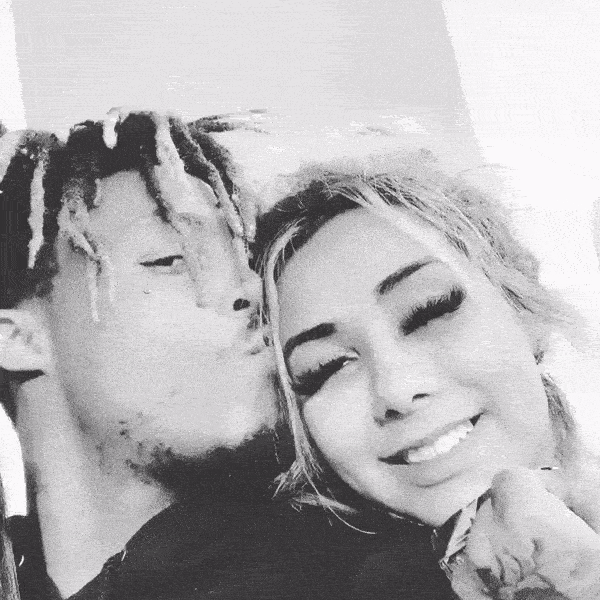
Denna artikel finns tillgänglig på svenska här: http://aspekt.nu/2019-12-12/juice-wrld/
Jarad Anthony Higgins – more commonly known as Juice WRLD – suffered from a seizure at Chicago’s Midway Airport on December 8th 2019. He died at the young age of 21, a mere six days after his birthday. The official cause of death has not yet been declared, but, for the people who have followed his career, it would not be a stretch to suspect that the cause of death might be drug-related. The information available suggests that he swallowed multiple pills in a panic, concerned that police officers might search the airplane (which was loaded with contraband materials) on landing. I found the news of his death incredibly shocking, despite being aware that drugs could very well lead to his death. Death knocked at his door way too early and so suddenly. I could see his immense talents and potential, which I wish that he had had the time to continue developing. More importantly, I wish that he had had the time to live a joyous life.

Jarad Higgins was a music lover who appreciated everything, be it rock, hip hop or indie. This was reflected in his sound. His way of singing and phrasing heavily resembled the emo rock or pop punk records that were popular in the early 2000s. His influences were Billy Idol, Lil Wayne, Eminem, Blink-182 and Megadeath, amongst others. Along with a plethora of other artists – including XXXTentacion, Lil Peep, and Trippie Redd (and Drake before them) – he put “emo rap” on the map. With the help of these artists, emo rap made it to the mainstream; the vulnerability that is a key aspect of the genre seemed to resonate with many listeners.
The idea of being deeply affected by the death of someone you haven’t met might seem odd to some people. For me, it’s a matter of empathy – the fact that someone so young has lost their life, along with their aspirations and visions, feels immensely tragic. Things get even bleaker when you have built a connection with the person through identifying with them and their shared vulnerability. When someone with characteristics similar to yours dies, a part of you tumbles to its death as well. Each time Jarad achieved something it made me proud; simply witnessing someone similar to you becoming successful sparks hope. In moments like these, I also ponder the idea that, under different circumstances, this could have easily been me.
The fact that his lyrics are filled with recurring references to drug-use seemed alarming to me. Drugs were depicted as a coping mechanism to temporarily escape from his troubles. An argument could be made for the fact that his music glorified drugs, but its primary focus was to portray his truth. I also don’t feel that it is appropriate to condemn someone so shortly after their passing.
I find it incredibly tragic that the mental health issues in the entertainment industry combine to create such an unholy alliance. The art produced may be ingenious but it comes at a high cost. An artist is allowed to continue engaging in self-destructive behavior as long as they continue making money. When they are drained, the industry moves on to the next cash cow.
I imagine that being open to getting help is hard, once a person experiences stardom, as fame can be incredibly isolating. This isolation grows stronger when you come from more humble beginnings: all of a sudden you don’t know who is a “true” friend and who is only there for the opportunities you can offer them. Your sorrows become the entertainment for others, and you constantly have to perform them on stage in front of dancing audiences. Part of what led to Jarad’s rise to stardom was his emotional openness, but it also meant that he was under constant pressure to present himself as an open book. Add depression to this mix – which even those without public scrutiny find incredibly hard to wrestle with – and it suddenly becomes a lot more understandable why many celebrities turn to drugs.
I wish that there were more ways of coping with one’s struggles, whether they are mental or circumstantial, no matter one’s financial situation. How do you help people who don’t have access to things like therapy, who turn to drugs in order to handle their demons? Regulations that prohibit drug-users’ access to therapy are unfortunately very common. I believe that Jarad’s death could have been prevented if there had been a “team” effort toward rehabilitation. Sadly, it is now too late.
So what am I trying to express? I’m not really sure, but deemed it necessary and important to convey my condolences. A farewell, in whatever way I can express it, wishing him and everyone affected by his death some peace. Take care! Thank you for helping us through your music. I’m sorry that this journey ended so early, but I don’t regret being a part of it.
Rest in peace, Jarad Anthony Higgins.
I would also like to dedicate this text to Per Olof. Rest in peace.
I have included some videos below. At the very bottom, you’ll find the track Forever, Juice WRLD’s first released song.
In this clip Ski Mask The Slump God pays tribute to his best friend XXXTentacion, now also having to add his close friend Juice WRLD to the list of fallen comrades, who he would probably refer to as his brothers. He lost both of them in just two years. Hopefully he can find the strength to carry on, despite the tragedies. His label should cut him some slack and allow him to mourn somewhere that’s not on a stage, or at the very least, some time to process.
https://www.youtube.com/watch?v=ytHJPenEC8A

